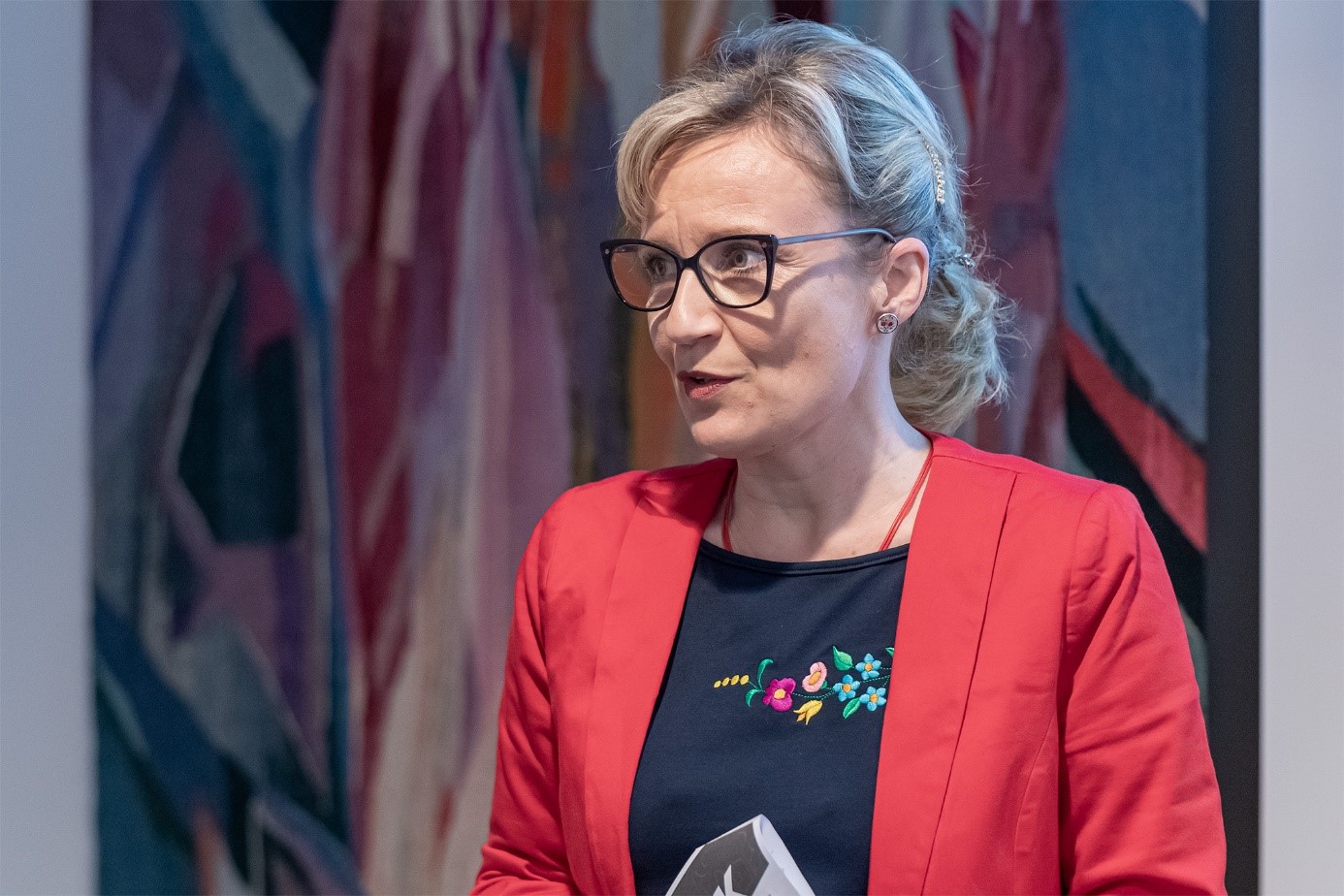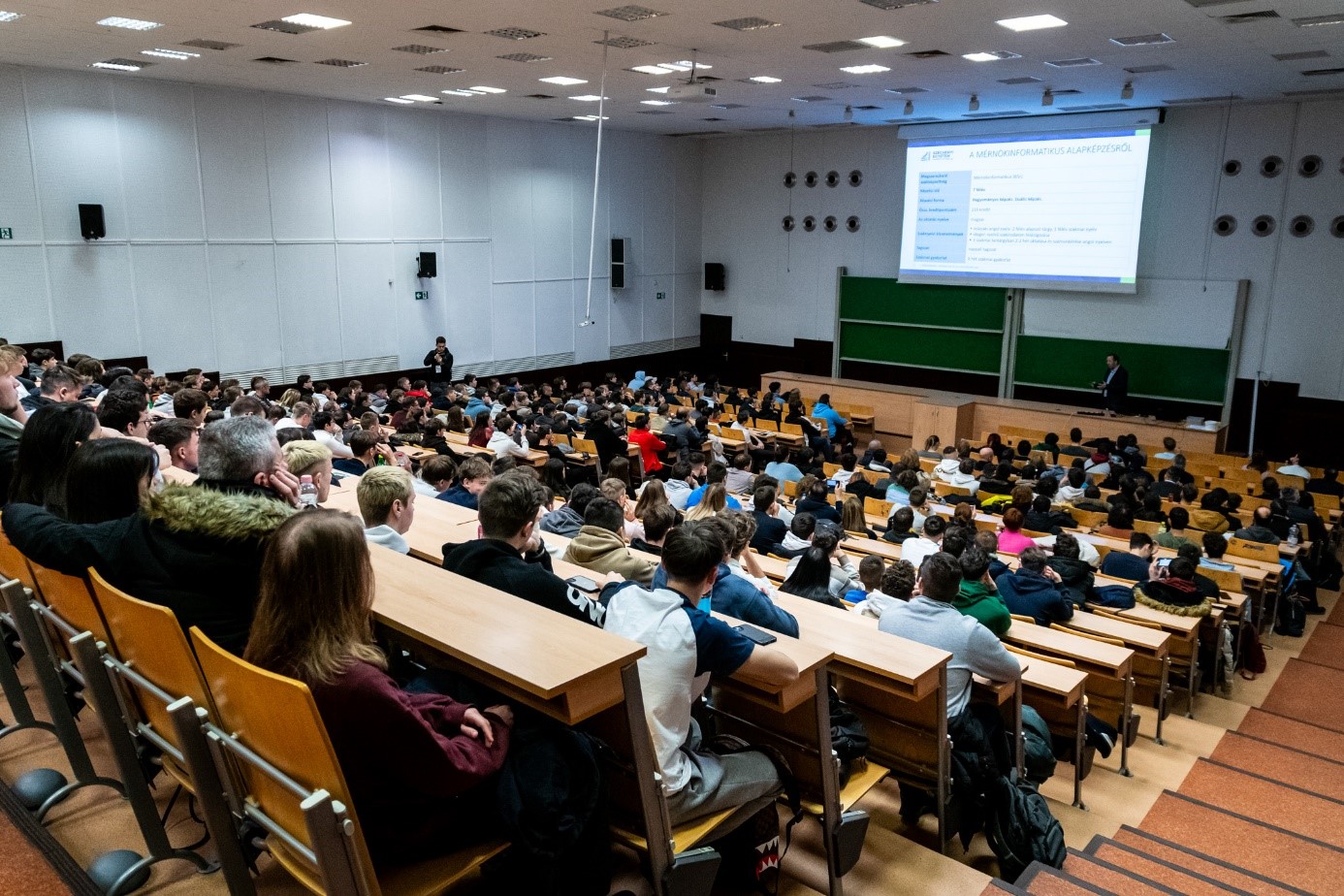SZE Helps its Lecturers with New Methodologies and Good Practices
Széchenyi István University offers its lecturers online and in-person programmes that enable them to learn new methods and good practices used by their fellow lecturers. The courses contribute to more effective teaching, increase students' activity, develop their skills and thus improve their performance.
Széchenyi István University provides a valuable degree and practical, up-to-date knowledge that is in demand in the labour market. To this end, the institution also encourages its lecturers to learn, offering them the opportunity to learn the latest methodologies. The training sessions are led by staff from the Directorate General for Methodology, Digital and Teacher Training, the János Apáczai Csere János Faculty of Education, Humanities and Social Sciences and other faculties.
"The rapidly changing world, the challenges of the labour market and generational changes make it necessary to continuously enrich our educational methodology, our pedagogical-psychological knowledge and our use of digital tools. With our training courses we would like to help the university's teachers to do this," said Dr Viktória Kövecsesné Gősi, the institution's Director General of the Directorate General of Methodology, Digital and Teacher Training. She added that the training for teachers is structured around four areas - technological skills, pedagogical methods, personal effectiveness and discipline-specific training. She stressed that it is important for colleagues to learn about each other's good practices, which are presented at professional days and are also available on a digital platform. The programme is supported by a methodology manual, with a short theoretical introduction and practical examples.
 Dr Viktória Kövecsesné Gősi, Director General of the Directorate General of Methodology, Digital and Teacher Training at Széchenyi István University, emphasized that the teacher training courses help effective teaching (Photo: András Adorján).
Dr Viktória Kövecsesné Gősi, Director General of the Directorate General of Methodology, Digital and Teacher Training at Széchenyi István University, emphasized that the teacher training courses help effective teaching (Photo: András Adorján).
"The young people who finished secondary school during the coronavirus epidemic have a different way of communicating, learning, motivating and connecting with them compared to previous generations. The training gives them techniques to overcome these difficulties," said Dr Diána Sarolta Henézi, Vice Dean of Educational Affairs at the Faculty of Architecture, Civil Engineering and Transport Engineering. She added that the exercises they learn make the lectures more varied and encourage the audience to be active. "The exercises allow some of the material to be learned, and the innovative approaches open doors for young people to each other and to the outside world," she said. She stressed that she would recommend all his fellow lecturers to take part in the various courses, as the use of methodologies that can be easily learnt with a small investment of time can lead to a significant improvement in results.
 The methodologies offered by the Széchenyi István University training programme also increase student activity and learning efficiency (Photo: Máté Dudás)
The methodologies offered by the Széchenyi István University training programme also increase student activity and learning efficiency (Photo: Máté Dudás)
Dr Nóra Gombkötő, Associate Professor of the Department of Agricultural Economics at the Albert Kázmér Faculty of Agricultural and Food Sciences in Mosonmagyaróvár, Hungary, applied for the course for similar reasons. "The knowledge I have gained will help me to base the curricula even more on practice, on the real challenges and solutions of the agricultural sector. This is particularly important when teaching agricultural databases and biometrics, where the use of modern technological tools and data management methods is key," she explained. As for the course attendance sessions for teachers, she stressed that they made it easier to deepen new knowledge and to experience directly the impact of different teaching techniques through group work and simulations. "The modules of the online courses consisted of interactive presentations, videos, text descriptions and exercises to be completed. These were concluded by independent tasks that required a lot of creativity," said Nóra Gombkötő.
Dr Gábor Kecskés, Associate Professor of the Department of International and European Law of the Deák Ferenc Faculty of Law and Political Sciences, presented the good practice of the Faculty to the participants of the programme. The lecturer presented an example that can be used in other disciplines, which he introduced together with his colleagues Dr Mónika Ganczer, Dr Dalma Takó and Dr Gábor Sulyok. "In the seminar part of the teaching of international law, we deal with specific legal cases. Students work on a specific case, case law or study, on which they also give a short lecture. Based on the information presented in the presentation, we prepare a Kahoot quiz for groups of three to four seminar students, so that all students compete on the information presented in each student's presentation. This method helps to put theoretical knowledge into practice, while at the same time encouraging a more lively attention, a competitive spirit and interaction. We have many years of experience that this helps to better retain information, increases the activity of the students, who also experience the effectiveness of teamwork," said the instructor, who has himself completed the methodological training. "The benefits of the programme are that we have been able to gain insights into the methodologies of other departments and that we are building a community of teachers who can learn from each other to raise the quality of teaching," he concluded.











